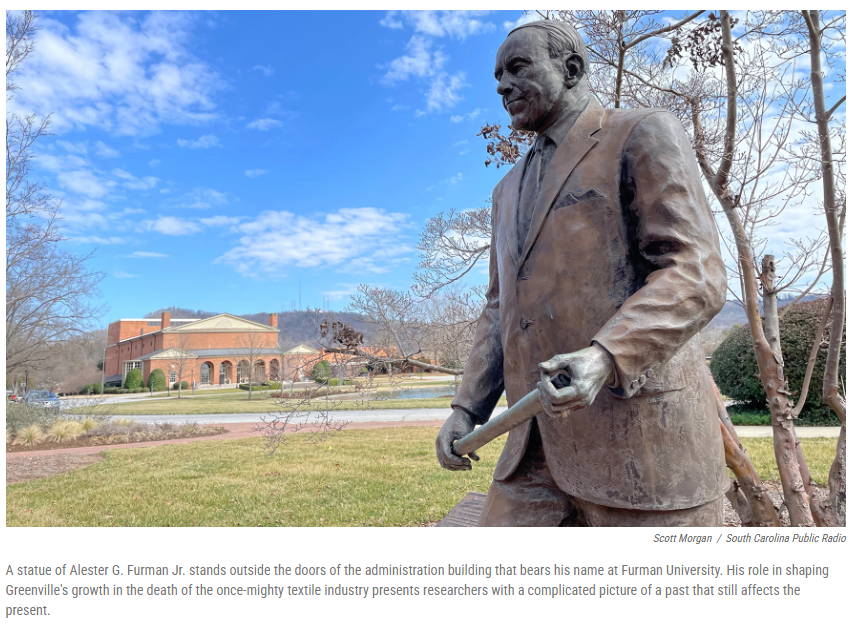SOUTH CAROLINA: Charleston Research Project to Map 200 Black Graves
CHARLESTON, S.C. – State preservation leaders say a project that documented and mapped 200 Black burial sites is a big moment for understanding the city’s past and planning its future.
Teams with the Preservation Society of Charleston, The Anson Street African Burial Ground Project and Brown Fellowship Society at the College of Charleston have all been working for years to better document sometimes-forgotten Black burial grounds.
Preservation Society President and CEO Brian Turner remembers when renovations at the Galliard Center in 2013 led to the discovery of 36 African ancestors at a burial ground. The burial ground contained the remains of children, women and men that dated back to the 1760-90s. Those remains were later reinterred in the area and a statue was commissioned to mark the burial site.
“The discovery of 36 African ancestors at the Gilliard center, really, I think, mobilized a group of people locally to recognize the threat to African American burial grounds broadly in the region, especially as development sort of continues, there’s a recognition that the sites aren’t well understood, have never been comprehensively mapped, and that there’s threat from ongoing development,” Turner says.
Turner says the society and Anson Street project earned a $50,000 National Park Service grant through their Civil Rights Initiative and began the research and documentation of burial grounds across the city.
“I think that this map is a really powerful tool. It’s the first of its kind, that we know, that’s been done nationally. So we’re hoping that it can be replicated in other cities,” Turner says.was
Turner recalls a few recent times when knowledge about a certain land’s history would have been or was relevant to its future. In 2020, the sale of a residential property downtown that was once the site of two African American cemeteries initiated a conversation between the Preservation Society and the Gullah Society, Inc. (which is now ASABG).
In that instance, there wasn’t much knowledge of the land, or protection in place to research and preserve it. A few years later, Turner says the knowledge of a probable African American burial site in Cainhoy led to a stopping a work order for an incoming development to make time for confirmation research and protection.
“Our real hope is not only that this informs planning, but it provides a platform for people to discover where their descendants are, to honor them,” Turner says.
In 2021, the City of Charleston adopted a gravesite protection ordinance that extended basic state-level protections for human remains, establishing a local process to prevent development impacts. Building on work by community members and city leaders, Turner says this map is a logical next step to educate the public on the presence of burial grounds and make the ordinance easier to enforce.
The College of Charleston held a ceremony Monday to collect soil from the former site of the Brown Fellowship Society at Rivers Green, behind the Marlene and Nathan Addlestone Library. It is one of multiple suspected black burial grounds on the College of Charleston Campus, along St. Phillip, Coming, Pitt and Calhoun Streets.
The soil will be incorporated into a permanent memorial for the Anson Street African Burial Ground that will be unveiled in the spring of 2025.
“Commemoration is an important part of the process of healing for a community,” CofC President Andrew Hsu says. “By pulling together soil from ancestral burial sites around Charleston, we pay tribute to the past so that our present and future can be better.”
The Brown Fellowship Society used the cemetery at Rivers Green until Bishop England High School purchased the property. After the construction of the Marlene and Nathan Addlestone Library in 2008, a monument was created to honor those members of the Brown Fellowship Society buried on the property.
Project collaborators say each of these steps is one in the right direction of a much longer path to understanding and preserving the history of Charleston and the country.
“I think it’s incredibly important, and particularly from what we we’ve heard from the African American community in Charleston, just how important these sites are to honor the legacy of the people that really got us where we are today,” Turner says.
–live5news.com



